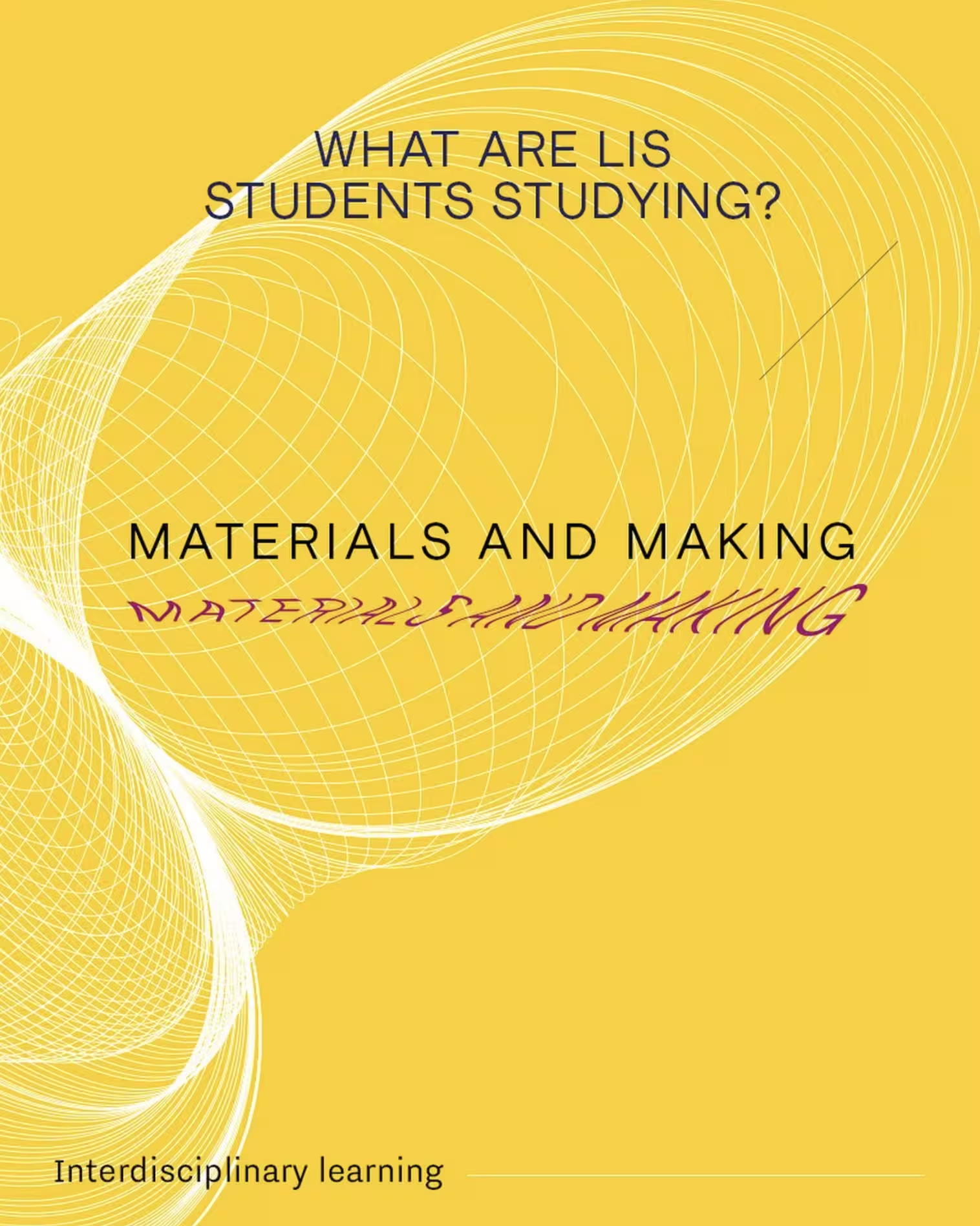Types of Master's Degrees in the UK: Complete Guide in 2025

Finding a master's degree programme that works for your professional and personal development can be challenging.
There are many different types of master's degrees designed to help various students advance their careers.
At LIS, our MASc degree programme focuses on interdisciplinary skills, helping students become complex problem solvers. Our programme goes beyond traditional learning and ensures you have qualitative and quantitative skills to excel in academic and professional careers.
This guide explores the most common categories of master's degree programmes, master's degree classifications, and how to choose the best degree for you.

Table of Contents
- What is a Master's Degree?
- Common Types of Master's Degrees in the UK
- Understanding Master's Degree Classifications
- How LIS Offers a Different Kind of Master's Experience
- Choosing the Right Master's Degree for Your Career
- Choose LIS Master's Degrees for Interdisciplinary Learning
A master's degree is a postgraduate qualification that students earn to demonstrate mastery of a specific subject or field. Before considering a master's degree, students must have achieved an undergraduate degree, typically in the field or area in which they want to master their professional skills.
While completing a master’s degree is challenging, having this qualification validates you as an expert in your field and can make it easier to secure high-level job roles.
The Purpose of a Master's Degree
A master's degree helps students develop specialist knowledge and skills in a specific field. This degree goes beyond the foundational skills covered in a bachelor's degree and enables students to advance their studies and establish a specialisation.
Here are some key reasons why students pursue a master's degree:
- Career Progression: A master's degree opens the door to better job opportunities in executive and leadership roles. Having in-depth knowledge and skills better prepares you for high-level positions, which look fantastic on your resume and boost your career ladder.
- Competitive Advantage: A master's degree sets you apart from other job candidates who lack this degree. You'll have more credibility when applying for jobs than other applicants, which is ideal for professionals in competitive industries.
- Masterful Skills: Postgraduate courses and qualifications equip students with the expertise critical for professional development and play a role in personal development.
- Increased Earning Potential: Another critical advantage of achieving your master's degree is increased earning potential. With better job opportunities comes the potential to earn higher salaries.
Who Typically Pursues a Master's Degree?
Students who have achieved a bachelor's degree in a specific field and want to advance their knowledge of it can pursue a master's degree.
This qualification is the ideal next step for undergraduate students who wish to improve their job prospects, progress in their field, and increase their earning potential.
How Long Does It Take to Complete a Master's in the UK?
A master's degree in the UK takes between one and two years to complete. Most full-time postgraduate diplomas require one year of studying, while if you opt for part-time, it should take two years to complete.
While there are many types of master’s degrees across multiple fields, here are the most common types of master’s degrees you can choose to pursue.

MA (Master of Arts)
MA degree programmes focus on social sciences, languages, humanities, literature, arts, education and cultural studies. Students must apply their critical thinking skills, and there is more focus on theoretical work than practical training.
For MA degrees, there is typically a primary dissertation, and your programme will involve qualitative research methods, theoretical exploration, debates and essay writing.
Examples of fields for MA degrees:
- English Literature
- Public Service
- Journalism
- History
- Political Science
- Art History
- Education
- Communications
MSc (Master of Science)
MSc qualifications relate to the hard sciences – biology, physics, chemistry, engineering, IT, mathematics, psychology, and economics. These programmes prepare students for technical careers and roles heavily reliant on scientific research. There is a strong emphasis on experiments, data modelling, empirical evidence and quantitative research methods.
Unlike the MA degrees, MSc programmes have less theoretical work and more group projects, coursework, lab work and a dissertation.
Examples of fields for MSc degrees:
- Data Science
- Environmental Engineering
- Artificial Intelligence (AI)
- Economics
- Finance
- Public Policy
- Consultancy
- Computer Science
MBA (Master of Business Administration)
MBAs are an excellent choice for students who specialise in business management, strategic thinking, entrepreneurship, leadership, HR, operations, and marketing. These degrees are highly practical and career-focused, and students can expect exercises, consulting projects, and simulations for business and management roles.
These programmes have diverse teaching styles, including networking events, group discussions, coursework, lectures and internships. This master's degree is ideal if you want to progress in business-related fields or start your own business.
Examples of fields for MBA degrees:
- International Business
- Finance
- Entrepreneurship
- Marketing
- Healthcare Management
- Operations Management
- Business Analytics
- Technology
MPhil (Master of Philosophy)
If you're looking for a research master's degree focusing on theory, MPhil programmes are the perfect fit. These master's courses emphasise original research across any academic discipline of your choice. There are few to no lectures, and you'll complete in-depth, independent, self-driven academic study leading to a thesis.
Students will find support in weekly supervision meetings and can complete research methodology training if required. These programmes are best for students who are preparing for a PhD. You typically need first-class or upper-second-class honours in any undergraduate degree and a strong research proposal to apply for an MPhil.
Examples of fields for MPhil degrees:
- Theology
- Physics
- Archaeology
- Linguistics
- Cultural Studies
- Anthropology
- Political Science
- Law
- Education
MRes (Master of Research)
MRes degree programmes are research-focused across many fields and have a balance between taught coursework and independent research. Students will complete modules and then work on a primary dissertation, which is typically more comprehensive than MA and MSc programmes. This degree is ideal if you want to pursue research-intensive careers or achieve a PhD.
The key difference between MRes and MPhil programmes is that the latter assumes you have advanced-level research skills and prepares you for in-depth research.
Examples of fields for MRes degrees:
- Neuroscience
- Business Research
- Anthropology
- Engineering
- Economics
- Computer Science
- Mathematics
- Physics
LLM (Master of Laws)
If you're looking for a legal practice course that helps you achieve your master's degree, LLM programmes are the answer. These programmes specialise in law studies and focus on case studies, coursework, research projects and seminars. A dissertation is also required for these degrees.
Examples of fields for LLM degrees:
- Environmental
- International Business
- Intellectual
- Human rights
- Tax
- Corporate
PGCert and PGDip (Postgraduate Certificate/Diploma)
The postgraduate certificate and diploma courses provide advanced studies in subjects similar to the MA and MSc programmes. Students will find that the postgraduate certificate is shorter without a dissertation, and the diploma is more comprehensive but still shorter than a typical master's degree. The diploma also doesn't have a dissertation, but students may complete a shorter project.
Examples of fields for PGCert and PGDip degrees:
- Education
- Project Management
- Business Management
- Health Sciences
- Engineering and Technology
Master's degrees can be classified based on how they're delivered, who they are designed for, and what they intend to achieve.
Let's examine the most common master's degree classifications and what to expect.

Taught Master's Degrees
The most common type of programme is a taught degree at master's level. These degrees are similar in structure to undergraduate degree programmes, such as structured lectures, seminars, coursework, and assessments.
Types of taught master's degrees include:
- MA
- MSc
- LLM
Taught master's degrees are ideal for:
- Students who prefer structured academic learning.
- Those who want to deepen their expertise in a specific subject.
- Students who are transitioning from undergraduate study to specialised roles or further research.
Research-Based Master's Degrees
Research-based master's degrees emphasise independent research and critical thinking and encourage students to develop original ideas beyond taught material. There are minimal structured and taught components, and students will mostly complete a detailed independent research project or thesis.
Types of research-based master's degrees include:
- MPhil
- MRes
Research-based master's degrees are ideal for:
- Students preparing for a PhD or research-based career.
- Those who enjoy self-directed study and original academic investigation.
Professional Master's Degrees
Master's degrees in this category prepare students for specific professions or leadership roles. These programmes focus on industry application and practical skills rather than just theory.
Types of professional master's degrees include:
- MBA
- LLM
- MPA (Master of Public Administration)
- MPH (Master of Public Health)
Professional master's degrees are ideal for:
- Mid-career professionals seeking career advancement or role changes.
- Students wanting to enter regulated or skills-based professions.
- Entrepreneurs and aspiring leaders.
Integrated and Conversion Master's Programmes
Unique to most postgraduate courses, a conversion course combines undergraduate and postgraduate study into a single, continuous course. It takes four to five years to complete this category of master's degree programmes.
Types of integrated and conversion master's degrees include:
- MSc
- MEng (Master of Engineering)
- MMath (Master of Mathematics)
Integrated and conversion master's degrees are ideal for:
- Students who are confident in their academic direction from the start.
- Those pursuing careers in scientific, technical, or academic fields.
This is how LIS offers a unique experience to gain a master’s degree, from our interdisciplinary approach to flexible study options and total financial, well-being, and career support.

An Interdisciplinary Approach to a Changing World
The master's degree at LIS takes an interdisciplinary approach to equip students with complex problem-solving skills across core disciplines.
Traditional master's degree programmes have a linear focus, while this programme teaches students how to synthesise knowledge, apply quantitative and qualitative skill sets, and tackle problems beyond their comfort zones.
The MASc programme combines science and art principles, focusing on one problem, two core modules, four method modules and one capstone project. Your capstone is where you will carry out original research and focus on a problem you are passionate about. This project allows you to build a career-centric resume and showcase your strengths to potential employers.
Let's take a closer look at LIS's MASc programme modules.
Problem Electives:
- AI Futures: Technics, ethics, and aesthetics.
- Acting Human: Cultural technology and human action.
- Designing for Life: Spatial cognition and human flourishing.
Methods Modules:
- Experimental Methods: How to read and think like a scientist.
- The Right Word: Analysing and creating impactful language.
- Everything Counts: Probability, statistics, and numerical estimation.
- Cracking the Code: Learning to program.
- Re: Form: Situating and analysing visual media.
Core Modules:
- Complexity: Learn complexity related to quantitative sciences.
- Integration: Achieving novel and synthetic results from integrating different bodies of knowledge.
Beyond the core modules, we offer you the flexibility to choose your method modules, problem electives, and capstone projects. This allows students to tailor their master's degree programme to their career objectives and the skills they want to progress.
Flexible Study Options for Diverse Backgrounds
Studying for a master's degree is a significant commitment. However, LIS offers part-time and full-time study options for flexibility. Regardless of the mode you choose, you can access on-campus facilities throughout your programme and study online or in person.
Let's examine all the flexible study options available for LIS MASc students.
Part-time, Remote-first:
- £7,000 / a year for two years
- 2 years of studying
- 8-10 hours per week
- 2-3 hours of online workshops per week
- On-campus days twice a year
Full-time, Campus-first:
- £14,000 / a year
- 1 year of study
- 5-10 hours per week
- Flexible self-paced online preparation
There are advantages to part-time, online studying and full-time, on-campus studying. On the one hand, the part-time option is ideal for students who want to work alongside their studies, have family commitments, don't want to commute regularly, or prefer to learn more slowly.
In contrast, the full-time study mode is better for students who want to study in person, complete their studies quicker, and thrive around other students.
Complete Financial, Professional and Wellbeing Student Support
LIS offers financial, professional, and well-being support for MASc students. These resources make it easier for students to access their master's degree, progress their studies, and land a job after graduation.
Here is an overview of LIS career support resources:
- LIS Network: LIS has an extensive alumni network that allows students to establish industry connections. These connections can make finding a job easier, allow for the sharing of skills and knowledge, and further one's professional perspectives.
- One-to-One Career Support: Students will have access to career managers who will help them develop their professional identities, understand what interests them, and how to showcase their skills.
- Career Design Framework: LIS delivers a shared framework for career planning designed for students seeking or already pursuing an interdisciplinary career.
Next, let's look at the well-being services for MASc students:
- Academic Development: Students will work with an academic tutor to help manage their workloads. If required, you can request more frequent meetings with your tutor.
- Personal Development: LIS provides every student with a student support advisor who provides additional support to the academic tutor.
Finally, here are the financial support options available for LIS MSc students:
- Master's Bursaries: LIS offers tuition fee discounts on a case-by-case basis.
- Student Loans: You can apply for a government loan, and UK students can apply for student loans, including tuition fees.
- Tuition Fee Loans: Students can apply for a Postgraduate Master's Loan to cover studying and living expenses up to £11,570.
- Scholarships: Government and LIS scholarships are available for home-based and international students.
Selecting the right master's degree is tricky. Here are key considerations for choosing the best type of master's programme for your personal and professional goals.
Identify Your Professional Goals
Decide whether to deepen your academic knowledge, switch careers, or move into leadership roles. Your goal will determine the best degree type.
Consider Your Preferred Learning Style
If you prefer lectures and structured coursework, choose a taught master's programme. If you enjoy independent research, consider a research-based Master's.
Assess Your Career Field Requirements
Some industries prefer professional master's degrees (e.g., MBA for business leadership, MPH for public health careers), while others value research credentials.
Consider Whether You Need a Career Change
If you're pivoting into a new industry, a conversion master's can fast-track you without needing another undergraduate degree.
Evaluate if Early Specialisation Works for You
If you are still an undergraduate and sure of your career path (e.g., engineering, physics), an integrated master's could save time and money.
Consider Admission Requirements
Research degrees (MPhil, MRes) often expect strong undergraduate academic records and a research proposal, while a professional master's may require work experience.
Factor in Time Commitment and Flexibility
Some master's degrees are intensive (1 year full-time), while others, like part-time professional programs, allow you to study while working.
At LIS, we provide an interdisciplinary approach to advancing your career. Unlike most master's degrees, our programme focuses on critical thinking and complex problem solving, equipping you with core skills whether you want to pursue any career.
Our team delivers financial resources to make learning accessible, in addition to wellbeing and career resources.
Ready to advance your career with a master's degree? Contact LIS for more information.
Share this story
Sign up for our newsletter
Don't miss out on important updates including course information, new announcements, Open Day dates and the latest LIS news.

.png)












































.svg)

.svg)









.webp)
This is a comment related to the post above. It was submitted in a form, formatted by Make, and then approved by an admin. After getting approved, it was sent to Webflow and stored in a rich text field.